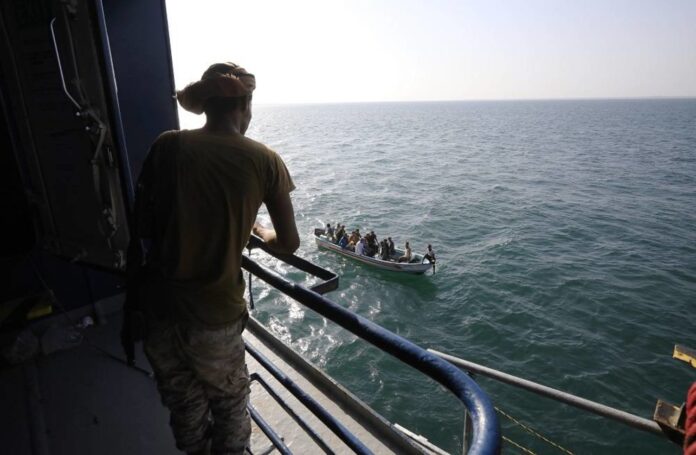The global economy faces renewed inflationary pressures following attacks on shipping along the critical Red Sea trade route, warns leading economist Mohamed El-Erian. While the disruptions aren’t as severe as those witnessed during the height of the Covid-19 pandemic, El-Erian cautions that they could lead to higher prices and a blow to economic growth.
Multiple shipping companies have ceased navigating the Red Sea route due to assaults by Houthi rebels in Yemen. Last week, the US and UK conducted military strikes against the rebels in response to the ongoing attacks.
Approximately 12-15% of global trade passes through the Red Sea via the Bab al-Mandab Strait, a vital 20-mile wide channel between Eritrea and Djibouti on the African side and Yemen on the Arabian Peninsula, along with the Suez Canal.
Houthi rebels, with backing from Iran, initiated attacks on commercial shipping late last year, coinciding with the Israel-Hamas conflict in October. Despite Western intervention, attacks persisted, with a US-owned cargo ship reportedly struck by a missile off the south coast of Yemen on Monday, as reported by maritime security firm Ambrey.
In response to the heightened risks, major shipping firms are rerouting vessels around Africa’s Cape of Good Hope, adding up to 12 days for cargo traveling between Singapore and northern Europe. Hapag-Lloyd, a shipping giant, suggests delays of up to 18 days for voyages between Singapore and the east Mediterranean.
The assaults on global trade routes have broader implications, with inflation, a measure of rising prices, falling sharply in the UK but now at risk of climbing again. Russia’s conflict with Ukraine had initially fueled inflation, particularly in oil and food prices.
S&P Global Market Intelligence notes that nearly 15% of goods imported into Europe, the Middle East, and North Africa are shipped from Asia and the Gulf by sea, including significant percentages of refined and crude oil. The disruption has affected oil prices, with Brent crude, the international benchmark, initially hitting $80 a barrel last week after military actions against the Houthis but settling at $77.75 on Monday.
Ashley Kelty, Director of Oil and Gas Research at Panmure Gordon, attributes the market’s subdued response to softer demand and oversupply of oil. He notes that expectations of a surge in Chinese oil demand post-lifting of Covid restrictions haven’t materialized as anticipated.
The Red Sea’s importance extends beyond oil, serving as a crucial route for liquefied natural gas (LNG) shipments. Reports suggest that QatarEnergy, a major LNG exporter, has suspended ship movements through the Bab el-Mandeb Strait, further impacting global energy markets.

















